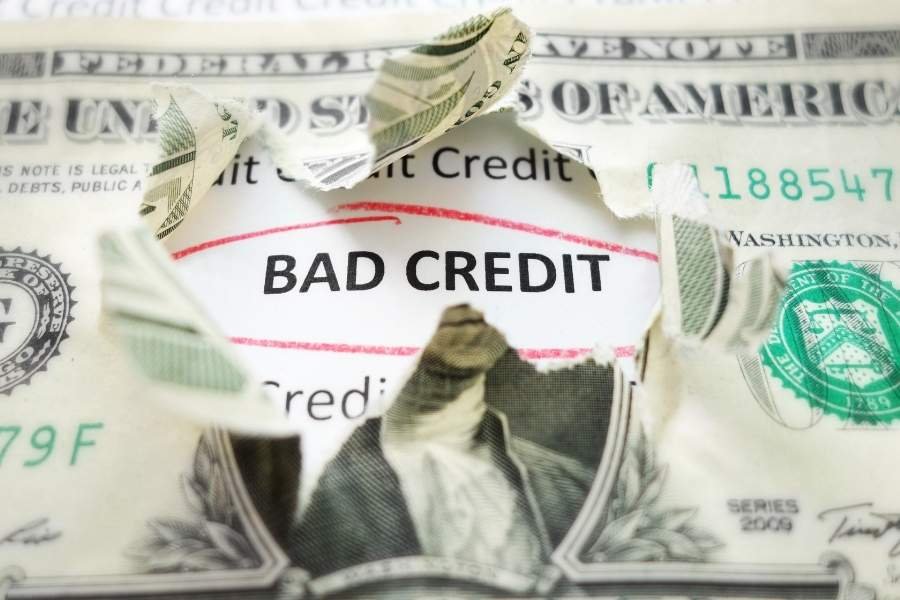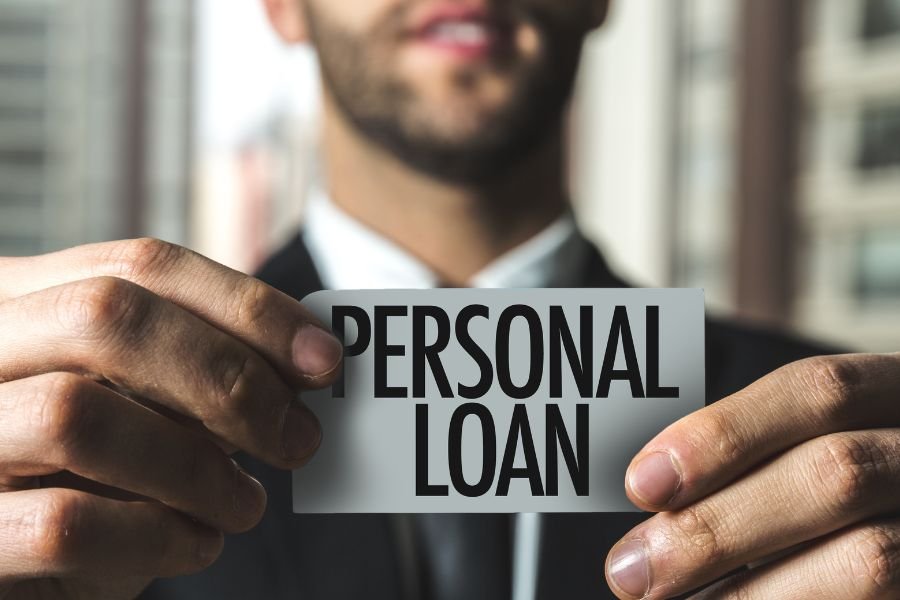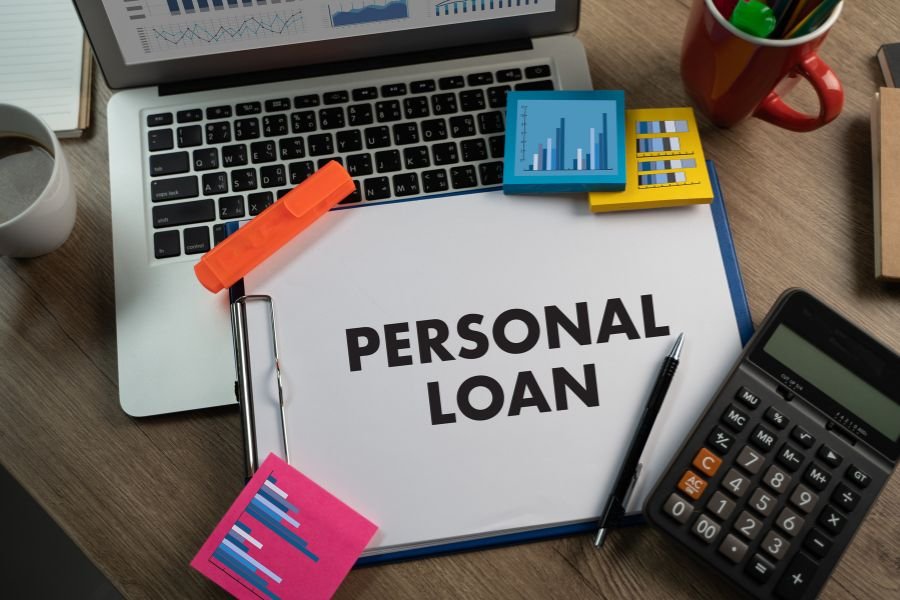Personal loans are a popular financial tool that many individuals turn to when they need extra cash for various reasons, such as consolidating debt, financing a large purchase, or covering unexpected expenses. However, when considering a personal loan, a common concern arises: Are personal loans bad for credit? Or, more specifically, How does a personal loan affect your credit score?
In this article, we will explore how personal loans influence credit scores, the factors that contribute to this impact, and whether a personal loan is ultimately good or bad for your credit.
What Is a Personal Loan?
A personal loan is an unsecured loan, typically offered by banks, credit unions, or online lenders, that can be used for a variety of purposes. The amount you can borrow, the interest rate, and the repayment terms depend on factors such as your creditworthiness, income, and the lender’s policies.
Unlike a mortgage or auto loan, which are secured loans tied to a specific asset (like a house or car), personal loans do not require collateral. This makes them riskier for lenders, which is why interest rates on personal loans may vary depending on your credit score and other financial factors.
How Personal Loans Affect Your Credit Score
To understand whether personal loans are good or bad for credit, it’s essential to first grasp how credit scores work. A credit score is a numerical representation of your creditworthiness, based on your credit history and behavior. The most commonly used scoring models, such as FICO and VantageScore, range from 300 to 850, with higher scores indicating better creditworthiness.
Your credit score is determined by several factors:
- Payment History (35%): Timely payments on loans, credit cards, and other debts have the biggest impact on your score.
- Credit Utilization (30%): This refers to the percentage of your available credit that you are using.
- Length of Credit History (15%): A longer credit history can help improve your score.
- Types of Credit (10%): Having a mix of credit types (e.g., credit cards, mortgages, auto loans, personal loans) can help your score.
- Recent Inquiries (10%): When you apply for credit, a hard inquiry is made, which can temporarily lower your score.
Now, let’s look at how a personal loan can influence these factors.
1. The Impact of Personal Loans on Your Credit Utilization
Credit utilization refers to the amount of available credit you’re using, which accounts for 30% of your credit score. For example, if you have a credit card with a $5,000 limit and a $1,000 balance, your credit utilization is 20%.
When you take out a personal loan, it can actually lower your credit utilization ratio. If you use the loan to pay down existing credit card debt, you reduce the balance on your credit cards, which in turn lowers your overall utilization. A lower credit utilization ratio can positively impact your credit score, as it signals to lenders that you are managing your credit responsibly.
2. How Personal Loans Affect Your Credit Mix
Your credit mix accounts for about 10% of your credit score. It considers the different types of credit accounts you have, such as credit cards, installment loans, and mortgages.
If your credit history is primarily made up of credit cards and you take out a personal loan, you can diversify your credit mix. A more varied mix of credit accounts can be beneficial for your credit score, as it shows lenders that you can manage different types of credit responsibly.
3. Hard Inquiry: A Short-Term Impact
When you apply for a personal loan, the lender will typically perform a hard inquiry (or “hard pull”) on your credit report. This allows the lender to check your credit score and history to assess whether you are eligible for the loan and what terms they can offer you.
Hard inquiries can cause a slight, short-term dip in your credit score—typically 5-10 points, though this can vary depending on your overall credit profile. However, this impact is usually temporary, and the effect on your score typically fades after a few months.
If you’re shopping around for the best loan rates, multiple inquiries in a short period (typically within 30 days) are often treated as a single inquiry by credit scoring models, minimizing the potential negative impact.
4. The Effect of Personal Loans on Your Credit History Length
Taking out a personal loan may reduce the average age of your accounts if it’s your first loan or if it replaces older debt. The length of your credit history accounts for about 15% of your credit score. A shorter credit history can have a negative impact on your score, but this factor is generally less significant than other factors, like payment history or credit utilization.
5. Timely Payments and Debt Management
The most significant long-term impact of a personal loan on your credit score will depend on how you manage the loan. Timely payments on your personal loan can significantly improve your credit score over time. Payment history is the most important factor in determining your credit score, so if you make consistent, on-time payments, your score will likely improve.
On the other hand, if you miss payments or default on the loan, it can severely damage your credit score. In fact, defaults and late payments can stay on your credit report for up to seven years, leading to a prolonged negative impact.
Are Personal Loans Good or Bad for Credit?
The question of whether a personal loan is good or bad for credit doesn’t have a one-size-fits-all answer. It largely depends on how you use and manage the loan. Let’s look at both sides of the argument:
Why Personal Loans Can Be Good for Your Credit
- Lowering Credit Utilization: By using a personal loan to pay down high-interest credit card debt, you can lower your credit utilization, which can help boost your credit score.
- Improving Credit Mix: If you don’t already have installment loans (such as an auto loan or mortgage), a personal loan can diversify your credit mix, which could have a positive effect on your credit score.
- Building a Positive Payment History: Making on-time payments on a personal loan helps demonstrate your ability to manage debt, which can improve your credit score over time.
Why Personal Loans Can Be Bad for Your Credit
- Hard Inquiries: Applying for a personal loan results in a hard inquiry, which can cause a temporary drop in your credit score.
- Debt Accumulation: If you take out a personal loan and then continue to rack up credit card debt, you could end up in a worse financial situation. Accumulating more debt can negatively affect your credit score.
- Risk of Missing Payments: Missing payments or defaulting on a personal loan can severely damage your credit score and hurt your financial health for years.
Tips for Using Personal Loans Responsibly
If you decide to take out a personal loan, there are steps you can take to minimize any negative impact on your credit:
- Use the Loan to Pay Down High-Interest Debt: By using a personal loan to consolidate high-interest credit card debt, you can reduce your credit utilization and lower the amount of interest you pay, which can benefit both your finances and your credit score.
- Make On-Time Payments: Timely payments are the most important factor in maintaining a good credit score. Set up automatic payments or reminders to ensure you never miss a due date.
- Don’t Accumulate More Debt: Avoid the temptation to run up new credit card balances after taking out the loan. If you don’t manage your spending, you may end up in a worse financial position.
Conclusion
So, are personal loans bad for credit? The answer depends largely on how you manage the loan. Used responsibly, a personal loan can be a helpful tool to improve your credit score by lowering your credit utilization, diversifying your credit mix, and helping you establish a positive payment history. However, if not managed properly, personal loans can contribute to higher debt levels, missed payments, and ultimately a drop in your credit score.
If you carefully consider your financial situation, use the loan to consolidate debt or meet a necessary expense, and commit to timely payments, a personal loan can be a good choice for both your credit score and your long-term financial health. However, like any financial tool, it’s important to use personal loans with caution and discipline to avoid potential pitfalls.



